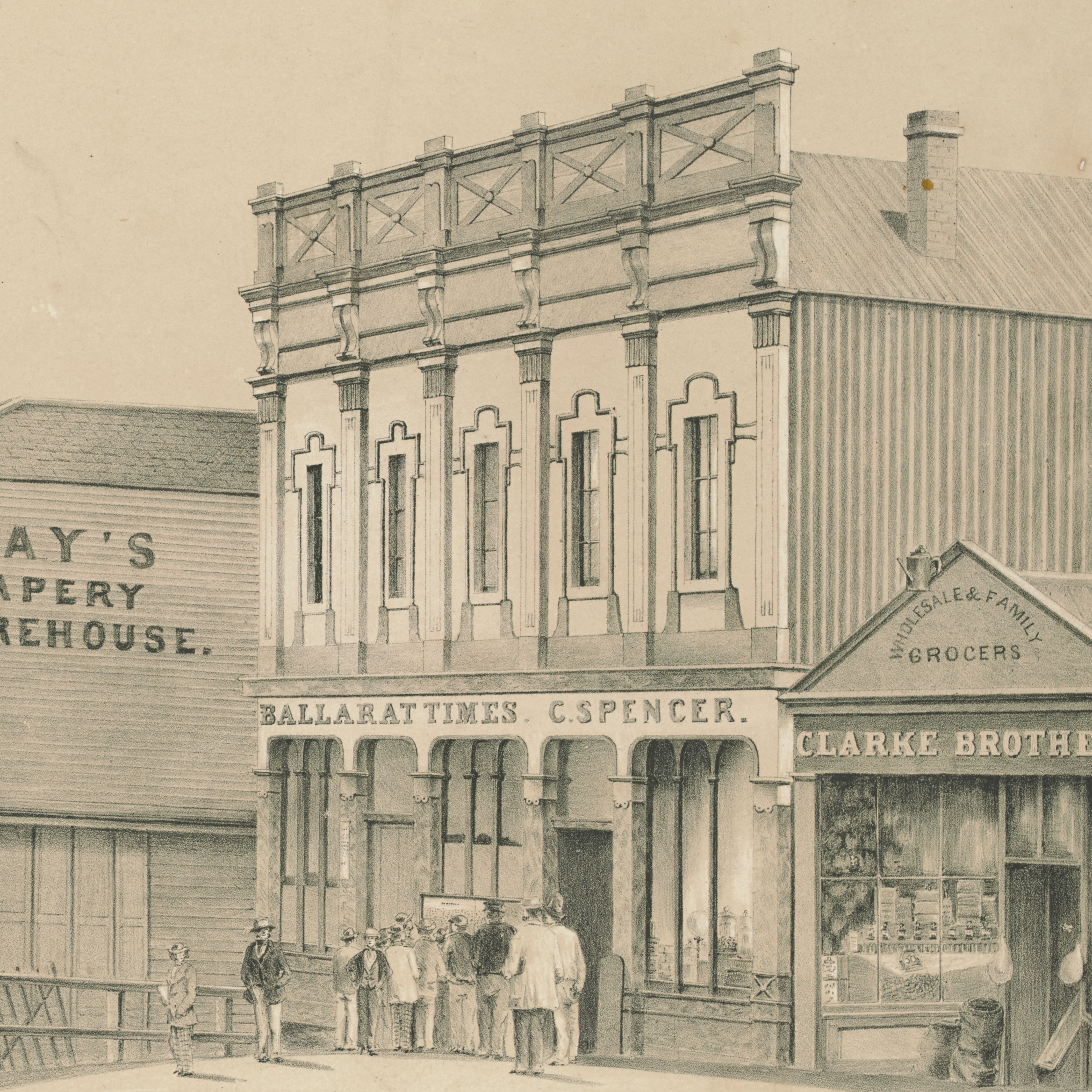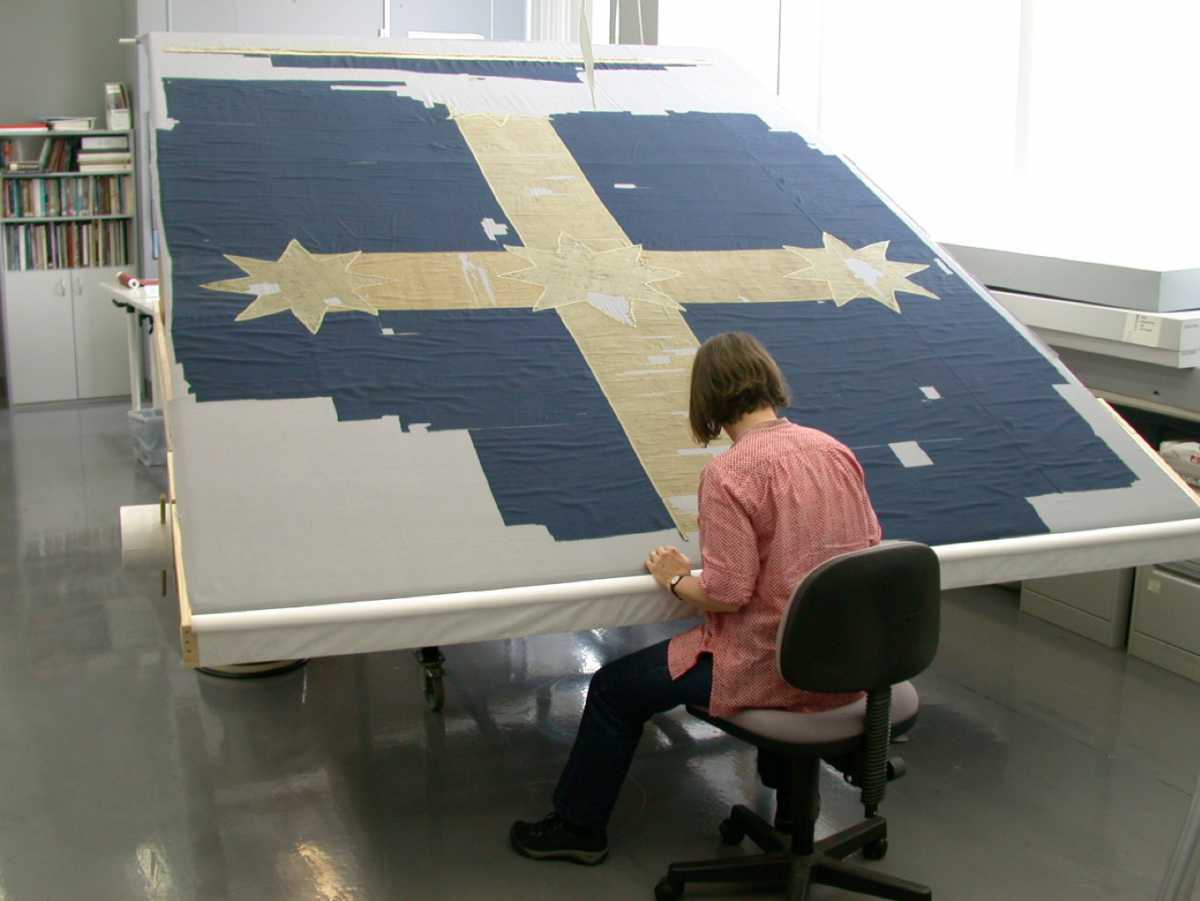The Peter Tobin Oration honours the contribution of the late Peter Tobin OAM to the commemoration of the Eureka Stockade. This year’s speaker is journalism scholar, Dr Josie Vine.
The Eureka Stockade is etched in our collective memory as a symbol of participatory democracy. We remember the miners who stood up for their rights, the leaders who became politicians, the reforms that transformed parliamentary representation, and the power of the jury in our courts system. But there is another force that keeps democracy’s cogs turning and as is so often the case, the role of Journalism has been almost forgotten in Australia’s most important historical narrative.
This presentation helps rectify the situation by remembering the media’s role in Eureka’s narrative and revealing the significance this narrative has on modern journalism’s sense of democratic responsibility - both today and in the future. Examining the cultural foundation of Australian media, this presentation focusses on Ballarat Times editor Henry Erle Seekamp (the only one of the 14 rebels goaled over the insurrection), and his wife, Clara.
While Henry Seekamp is well-known within the history of Australian journalism, until recently, Clara Seekamp’s contribution has been largely overlooked. When her husband was imprisoned, she took over the running of the Ballarat Times, becoming the first female editor of an Australian newspaper. Recent research also proposes that it was Clara, not Henry, who penned the seditiously offensive editorials that sided with protesting miners. With her own story entwined with that of the Eureka rebels, Clara is increasingly positioned as a principal symbol when thinking about gender and democratic rights on the Victorian goldfields.
Image: François Cogné. ‘Part of Main Road, 1859, Ballaarat East’, Deutsch & Ferguson printer, Collection of the State Library of Victoria, H1849.
Dr Josie Vine
RMIT University
 Josie Vine has researched and taught into the RMIT Journalism Program since 2006. Josie’s research and teaching focusses on the history and culture of modern Australian journalism.
Josie Vine has researched and taught into the RMIT Journalism Program since 2006. Josie’s research and teaching focusses on the history and culture of modern Australian journalism.
After extensive research, Josie has traced the key historical episodes that have built professional Australian journalism’s current collective values and beliefs. In her publication, Larrikins, Rebels and Journalistic Freedom in Australia (Palgrave Macmillan, 2021), she identifies the Eureka rebellion of 1854 as a defining event that contributes to Australian journalism’s understanding of its own democratic responsibility today - and will continue to do so into the future.
Her latest book, dealing with Journalistic history and culture, is Newspaper Building Design and Journalism Cultures in Australia and the UK: 1855–2010: 1855–2010 (co-authored with Salford University’s Dr Carole O’Reilly, Routledge Publishers, 2022).
Josie lives in Melbourne’s Western suburbs with her youngest child (the older two have flown the nest), her partner, two dogs and three cats.

